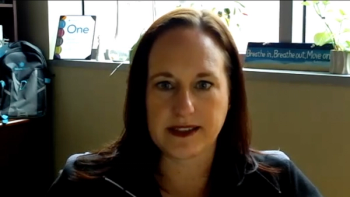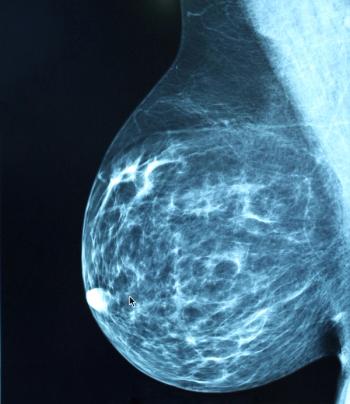
Oncology NEWS International
- Oncology NEWS International Vol 4 No 8
- Volume 4
- Issue 8
HHS to Impose Monetary Penalties for Unlawful Referrals
WASHINGTON--The Health and Human Services (HHS) Office of the Inspector General (OIG) has published a final rule that implements a civil monetary penalty for physicians who refer patients to radiology, laboratory, and other facilities in which they, or a member of their immediate family, have a financial interest.
WASHINGTON--The Health and Human Services (HHS) Office of theInspector General (OIG) has published a final rule that implementsa civil monetary penalty for physicians who refer patients toradiology, laboratory, and other facilities in which they, ora member of their immediate family, have a financial interest.
The rule states that assessments can be made "against anyperson who presents, or causes to be presented, a bill or claimthe person knows or should know is for a service unlawfully referredunder section 1877(a)(1)(A) of the Social Security Act, or hasnot refunded amounts inappropriately collected for a prohibitedreferral." (See below.)
In addition, OIG can impose penalties if a physician or entityenters into an arrangement or "circumvention" schemein which he or she knows, or should have known, that the principalpurpose is to assure referrals which, if they were made directly,would violate the Omnibus Budget Reconciliation Act (OBRA).
An example would be a cross-referral arrangement in which physicianowners of two different facilities refer patients to each other'sfacility (see below).
The Omnibus act, which bars physicians from referring Medicarepatients to a laboratory, x-ray or other medical facility in whichthey have a financial interest, went into effect in 1989. OBRA1993 expanded these restrictions to include additional healthservices and made the law applicable to Medicaid as well as Medicarebillings.
HCFA has long maintained that preventing inappropriate utilizationby prohibiting self-referral is a major component in its continuingefort to fight fraud and abuse. Now the OIG rule allows the impositionof stiff money penalties.
OIG Regulations Officer Joel Schaer said that although his officeperforms periodic payment audits, "we find out about offendersmost often through our toll-free hot line. Callers, who can remainanonymous if they choose, let us know about physicians who arwmaking these illegal arrangements, and we investigate.
The office has nine regional offices to look into complaints thatcome from other physicians, patients, and physicians' employees(both disgruntled former employees and current ones).
New Penalties for Prohibited Physician Self-Referrals
For Billing of Unlawfully referred Services
For Unlawfull Referral Arrangements
From a ruling by the HSS Office of the Inspector General
Articles in this issue
over 30 years ago
CA 125 Predicts Response to Chemo in Ovarian Caover 30 years ago
Biochemical Modulation Promising in RT-Resistant GI Cancerover 30 years ago
Cancer Institute of NJ Adds to its Staffover 30 years ago
A Century of Breast Cancer Litigation Is 'Deconstructed'over 30 years ago
New Depot Formulation of LHRH Analogue Allows 12-Week Dosingover 30 years ago
NSABP Investigation Threatens Academic Freedom for All: Fisherover 30 years ago
Cancer Fax Directory in 3rd Editionover 30 years ago
HIV-Related Malignancies Increasing, Physicians Tell Panelover 30 years ago
Breast Cancer Risk Factors Remain Elusive TargetNewsletter
Stay up to date on recent advances in the multidisciplinary approach to cancer.



































